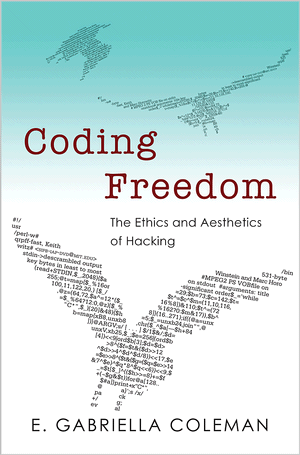Alexander R. Galloway: The Interface Effect (2012)
Filed under book | Tags: · aesthetics, computing, ideology, interface, media, media theory, mediation, ontology, philosophy, politics, software

“Interfaces are back, or perhaps they never left. The familiar Socratic conceit from the Phaedrus, of communication as the process of writing directly on the soul of the other, has returned to center stage in today’s discussions of culture and media. Indeed Western thought has long construed media as a grand choice between two kinds of interfaces. Following the optimistic path, media seamlessly interface self and other in a transparent and immediate connection. But, following the pessimistic path, media are the obstacles to direct communion, disintegrating self and other into misunderstanding and contradiction. In other words, media interfaces are either clear or complicated, either beautiful or deceptive, either already known or endlessly interpretable.
Recognizing the limits of either path, Galloway charts an alternative course by considering the interface as an autonomous zone of aesthetic activity, guided by its own logic and its own ends: the interface effect. Rather than praising user-friendly interfaces that work well, or castigating those that work poorly, this book considers the unworkable nature of all interfaces, from windows and doors to screens and keyboards. Considered allegorically, such thresholds do not so much tell the story of their own operations but beckon outward into the realm of social and political life, and in so doing ask a question to which the political interpretation of interfaces is the only coherent answer.
Grounded in philosophy and cultural theory and driven by close readings of video games, software, television, painting, and other images, Galloway seeks to explain the logic of digital culture through an analysis of its most emblematic and ubiquitous manifestation – the interface.”
Publisher Polity, 2012
ISBN 0745662528, 9780745662527
170 pages
Review: McKenzie Wark (Public Seminar, 2015).
PDF (updated on 2021-12-16)
Comments (3)E. Gabriella Coleman: Coding Freedom: The Ethics and Aesthetics of Hacking (2012–) [EN, SC]
Filed under book | Tags: · aesthetics, anonymous, anthropology, code, computing, ethics, floss, free software, hacker culture, hacking, intellectual property, internet, internet activism, software, web

“Who are computer hackers? What is free software? And what does the emergence of a community dedicated to the production of free and open source software–and to hacking as a technical, aesthetic, and moral project–reveal about the values of contemporary liberalism? Exploring the rise and political significance of the free and open source software (F/OSS) movement in the United States and Europe, Coding Freedom details the ethics behind hackers’ devotion to F/OSS, the social codes that guide its production, and the political struggles through which hackers question the scope and direction of copyright and patent law. In telling the story of the F/OSS movement, the book unfolds a broader narrative involving computing, the politics of access, and intellectual property.
E. Gabriella Coleman tracks the ways in which hackers collaborate and examines passionate manifestos, hacker humor, free software project governance, and festive hacker conferences. Looking at the ways that hackers sustain their productive freedom, Coleman shows that these activists, driven by a commitment to their work, reformulate key ideals including free speech, transparency, and meritocracy, and refuse restrictive intellectual protections. Coleman demonstrates how hacking, so often marginalized or misunderstood, sheds light on the continuing relevance of liberalism in online collaboration.”
Publisher Princeton University Press, 2012
Creative Commons Attribution-NonCommercial-NoDerivs 3.0 License
ISBN 1400845297, 9781400845293
264 pages
Responses: Jo Bates, Denisa Kera, Brett Lunceford, Jorge Luis Zapico, Alexander Halavais, Stéphane Leman-Langlois, Ethan Zuckerman
Reviews: James Grimmelmann (Jotwell: Cyberlaw, 2012), David Banks (Cyborgology, 2012), Eric Raymond (2013), Cade Metz (Wired, 2013), Mike Doherty (Hashbang, 2013), Bruce Byfield (Linux Mag blog, 2013), Bryan Behrenshausen (OpenSource.com, 2013), Roy S. Gutterman (Journalism & Mass Communication Q, 2014), Tim Jordan (American J Sociology, 2014), Emily T. A. Earl (Techno_ethno, 2014), Anne Elizabeth Yaniga (Techno_ethno, 2014), Sebastian Kubitschko (Culture Machine, 2014).
Coding Freedom (English, updated on 2013-1-18, PDF, EPUB [updated on 2014-9-2])
Kodiranje slobode. Etika i estetika hakovanja (Serbo-Croatian, trans. Ljubica Gotić and Predrag Todić, 2014)
Florian Hoenig: Computational Aesthetics and Visual Preference: An Experimental Approach (2006)
Filed under thesis | Tags: · aesthetics, complexity, computational aesthetics, computing, information aesthetics, perception, vision
Computational Aesthetics is a term which has been frequently used by scientists interested in quantitative approaches towards the concept of aesthetics during the last century. A review of both past and recent works attempting to quantify aesthetic preference of various stimuli is given, which shows that aesthetics was described as some function of complexity and order in many theories.
Since most measures were hardly relating to knowledge of human perception, complexity is reinterpreted in the context of a currently accepted model of visual perception and a hypothesis is formulated which states that human visual preference is not independent of complexity (cell excitation) at the very first stage of visual processing.
An estimate representative for cell activity in early visual processing is presented: Multivariate Gabor Filter Responses. Additionally, image properties such as aspect ratio, resolution and JPEG compressibility are used to sanity-check any correlations.
The estimate calculated, compared against human preference ratings of photographs, shows statistically significant but low correlations. However, the machine learning experiments performed, fail to predict any better than one would by taking the mean value of the data.
Even though these results only loosely relate to aesthetic perception, it’s motivating further research and closer inspection of image features and their relation to perceptual properties and visual (aesthetic) preference.
Thesis
Computer Science, JKU Linz, Austria
Supervisor Josef Scharinger
118 pages
PDF
View online (Scribd.com)

